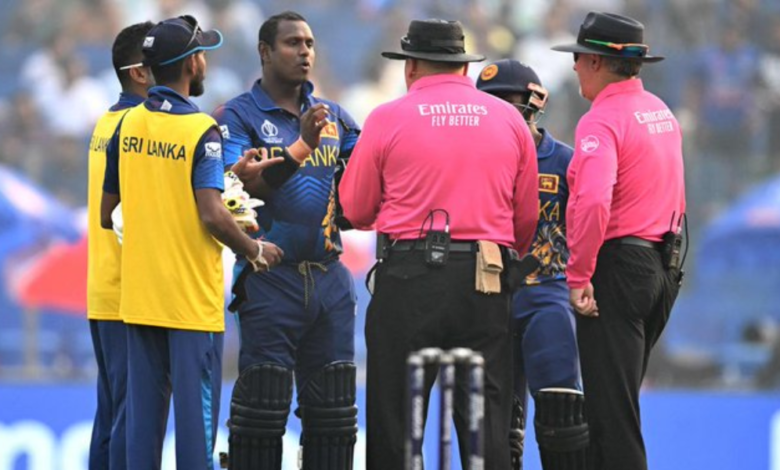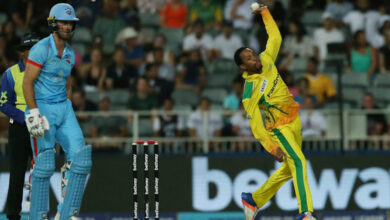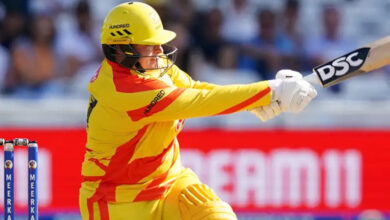MCC Upholds Umpires’ Decision in Angelo Mathews’ Timed-Out Controversy

The dismissal of former Sri Lanka captain Angelo Mathews, under the rare circumstance of being ‘Timed Out’ during the 2023 World Cup match against Bangladesh, stirred controversy and criticism. Mathews, visibly upset, criticized the fourth umpire and Bangladesh skipper Shakib Al Hasan, labeling the act as “disgraceful.” In response to Mathews’ claims of being “wronged” and presenting “video evidence,” MCC, the custodians of the Laws of Cricket, has provided their verdict on the dismissal.
Key Cricketing Controversy Unraveled
The incident in question occurred during the 2023 World Cup match between Sri Lanka and Bangladesh at the Arun Jaitley Stadium in New Delhi. Mathews faced a Timed-Out dismissal, invoked by Shakib Al Hasan’s appeal, after he failed to be ready to face the next delivery within the stipulated two minutes following Sadeera Samarawickrama’s dismissal.
In their statement released on Saturday, MCC shed light on Law 40.1.1, which governs Timed Out dismissals. According to this law, being on the field or at the crease is not sufficient to escape this form of dismissal; the batter must be ready to face the bowler within the specified time. The statement clarified that Mathews’ delay was determined to have occurred after the two minutes had elapsed.
MCC’s statement delved into the details of the controversial incident. Mathews, without informing on-field officials, signaled for a spare helmet when his chin strap came off. Umpires concluded that he wasn’t ready to face the delivery within the allowed time. The umpires could have treated the delay as equipment-related if informed, but Mathews did not consult with the umpires regarding the helmet malfunction, merely signaling for a replacement.
Mathews’ “Video Evidence” and MCC’s Response
Angelo Mathews, dissatisfied with the decision, took to social media to present “video evidence” suggesting that he had “5 more seconds” before the two-minute limit. MCC, in response, stood by the umpires’ decision, emphasizing that Mathews had taken more than 90 seconds to reach the 30-yard circle and the helmet malfunction occurred 1 minute and 54 seconds after the previous wicket had fallen. The statement reinforced that, at the time of the appeal, more than two minutes had elapsed, justifying the correctness of the Timed-Out decision.
MCC’s final verdict affirmed that the umpires correctly gave Mathews out within the Laws of Cricket. The statement clarified that Mathews, by not consulting with the umpires and signaling for a replacement without explaining the situation, left no alternative action for the officials. The incident, while contentious, was determined to align with the rules governing Timed-Out dismissals.
As the cricketing world digests MCC’s verdict, the controversy surrounding Angelo Mathews’ Timed-Out dismissal takes its place in the annals of unique cricketing incidents. The adherence to the Laws of Cricket, as clarified by MCC, underscores the challenges and intricacies faced by players and officials in the heat of competitive matches.




